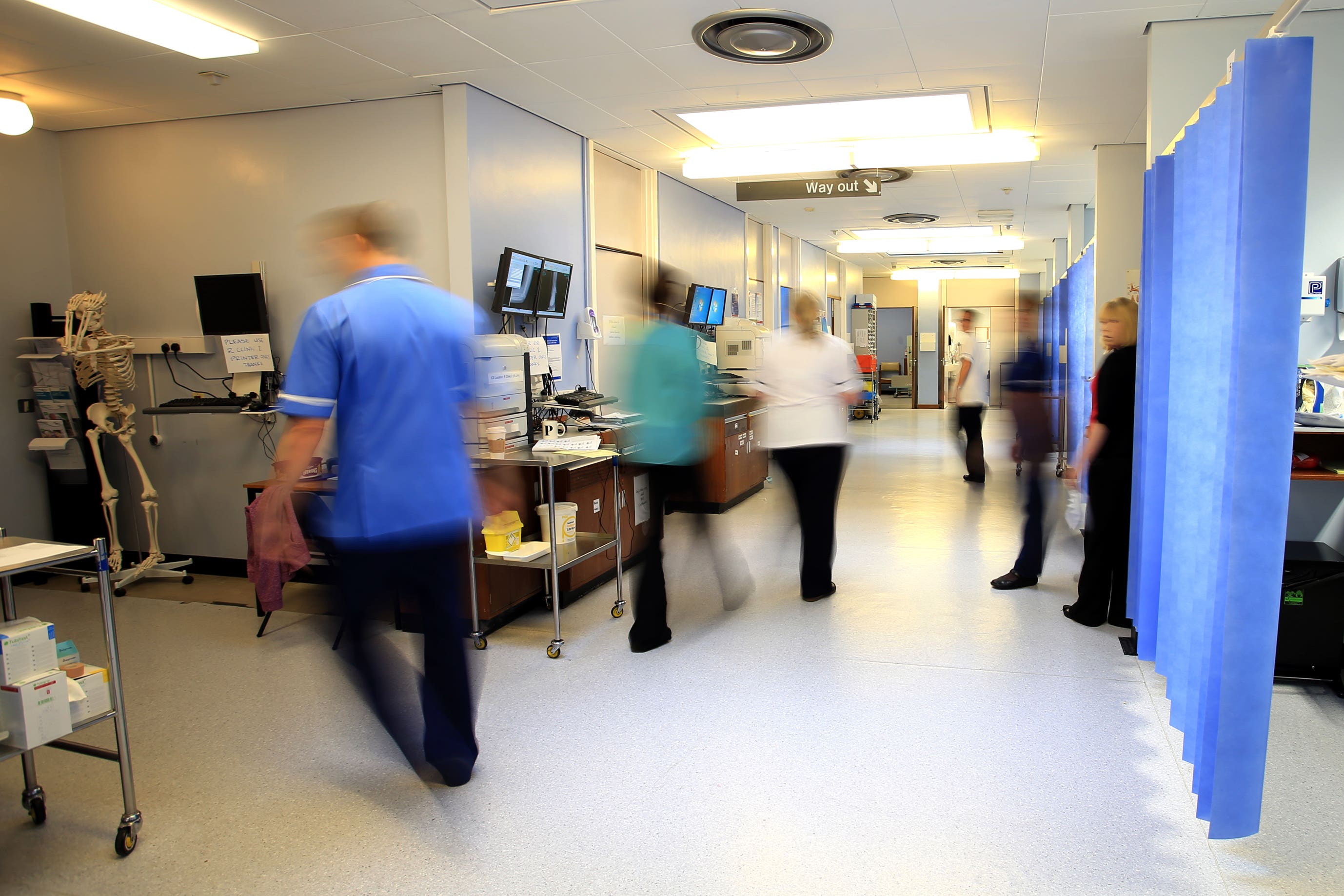NHS faces ‘enormous challenge’ as demand remains high and latest strike looms
An average of 2,208 patients were in hospital in England each day last week with flu.

The NHS in England is facing an “enormous challenge” in the days ahead from the combined impact of winter pressures and the latest strike by junior doctors, health chiefs have warned.
Demand for beds remains high because of large numbers of patients with flu and other seasonal viruses, plus the ongoing struggle to discharge thousands of people who are fit to leave.
Hospitals have also had to make contingency plans to deal with another round of strike action by junior doctors, their 10th walkout in a long-running dispute over pay, which begins at 7am on February 24 and runs to 11.59pm on February 28.
Many NHS trusts have already rescheduled appointments and operations because of the strike, besides putting in place measures to maintain care for those who need it urgently.
The walkout comes at a time when the health service is still dealing with hundreds of people suffering from winter viruses.
An average of 2,208 patients were in hospital in England each day last week with flu, including 112 in critical care beds, NHS data shows.
The total is down slightly by 8% from 2,390 the previous week, but is still up 68% since the start of January, while the number in critical care is the highest so far this winter.
Flu infections this year have surged at a later point than in 2023, which saw hospital numbers top 5,000 in early January in what was the worst flu season in the UK for a decade.
This year’s outbreak looks to have peaked at a lower level, at nearly 2,500 patients in early February.
An average of 505 adult beds were filled last week by people with diarrhoea and vomiting or norovirus-like symptoms, down by 10% from 561 the previous week but around a third (34%) higher than at the start of the year.
In addition, an average of 2,720 people who had tested positive for Covid-19 were in hospital last week, down from 3,229 the previous week.
Covid-19 patient numbers peaked at more than 9,000 last winter.
Delays in discharging patients continue to put further pressure on hospitals, with an average of 13,624 beds per day last week occupied by people medically fit to leave.
This is down very slightly from 13,766 the previous week but remains well above levels seen for much of the winter.
Professor Sir Stephen Powis, NHS England national medical director, said the intensity of industrial action within the NHS this year – the equivalent of one in every 10 days affected by strikes – had had a “huge impact” on services, patients and staff.
The latest weekly figures on hospital performance, together with the ongoing demand for urgent and emergency care, make clear the “enormous challenge faced by the NHS”, he added.
“Colleagues across the country have worked incredibly hard to ensure urgent and life-saving care has continued during more than a year of strike action, while also delivering progress on our recovery plans, but the NHS is under huge strain trying to mitigate the impact of these latest strikes during one of the most difficult times of the year.
“It remains vital that people who need care come forward and get it in the usual way – using 999 and A&E in life-threatening emergencies and 111 for everything else.”
Besides delays in discharging patients, hospitals are continuing to record a high level of delays in admitting people who have arrived by ambulance, 30% of whom had to wait more than half an hour last week to be handed over to A&E teams.
This is down from 33% in the previous week, but is above the level at this point last year, which was 25%.
Some 12% of ambulance patients had to wait more than an hour to be handed over last week, down slightly from 13% the previous week and above the 10% at this stage in 2023.
Analysis by the PA news agency shows that, among those trusts reporting at least 50 ambulance arrivals in the week to February 18, the highest proportion of patients waiting more than 30 minutes to be handed over was 83% at the Royal Cornwall Hospitals (491 out of 593 patients where the handover time is known).
This was followed by University Hospitals Plymouth at 82% (459 of 557 patients), Royal United Hospitals Bath at 72% (365 of 506 patients) and Great Western Hospitals at 67% (289 of 430 patients).
Bookmark popover
Removed from bookmarks